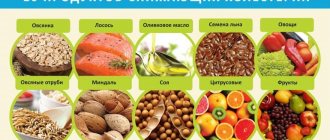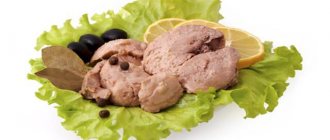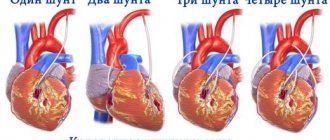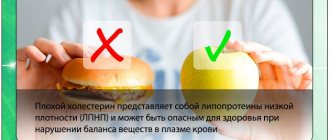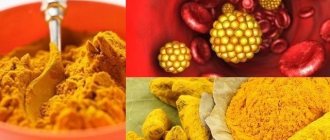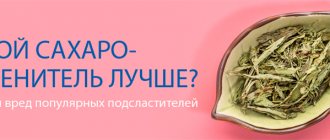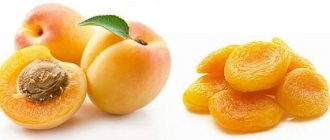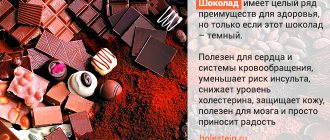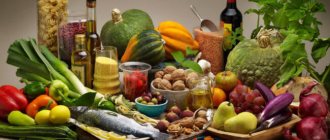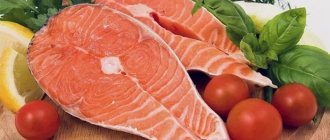Sunflower seeds are a favorite delicacy of many people. They are eaten fried and raw, and used for cooking and baking. Some people talk about the benefits of this product, others consider it very harmful. In this article we will try to figure out what seeds actually are and learn about their beneficial and harmful properties.
Some historical facts
Sunflower is a crop brought to our country from the American continent. It first came to Europe during the time of Columbus and the Spanish conquistadors. Initially, it was classified as an ornamental plant, so it began to be eaten several centuries later. Sunflowers served as decoration for park areas and gardens.
In Russia, the plant began to be cultivated at the beginning of the 19th century. One peasant tried to extract oil from sunflower seeds. To do this, he used a hand press and carried out his plan. By the end of the 19th century, sunflower oil had become a popular product in Europe and in the historical homeland of the culture - America.
How to roast seeds correctly
In order to get a tasty and healthy product, you should follow some rules when cooking:
- Before frying, the seeds should be rinsed well under running cold water;
- fry the seeds without adding vegetable oil to the pan.
It is advisable to roast the seeds right before use. Instead of frying, you can also dry them in the oven or microwave (this method has become increasingly popular lately).
Place the washed seeds on a preheated frying pan. It is good to use a cast iron product for these purposes. During the frying process, you need to stir the seeds until you hear a characteristic crackling sound. At this point, they should be removed from the heat for a while, and then returned again. Repeat this process several times. It is important to constantly stir the seeds to prevent the product from burning. It is better not to eat overcooked seeds, as they no longer contain anything useful. When the seeds are ready, they need to be placed on a wooden cutting board and covered with a cotton towel for a few minutes. During the frying process, if necessary, the seeds can be salted.
Of course, almost everyone loves fried sunflower seeds, but for health it is more advisable to eat a raw or dried product, since after heat treatment the sunflower seed loses many of its beneficial qualities.
What is included in the seeds, what are their benefits?
In recent years, more and more attention has been paid to healthy eating. People avoid fatty foods because they contain cholesterol. Therefore, it will be interesting to know whether there is cholesterol in sunflower seeds?
To answer this question, you should carefully study the composition of the product, find out what its benefits and harms are.
Many people love to chew seeds, but few people think about their unique properties. In fact, this is a most valuable product, comparable in nutritional value to meat and chicken eggs. In addition, the seeds are easily digested and absorbed by the body.
What is included in their composition?
- Phosphorus. The body needs it for the strength of bone tissue and teeth. Maintains the normal state of the muscular system and mental activity.
- Selenium. This trace element reduces the risk of developing cancer, improves the functioning of the pancreas, and strengthens the human immune defense. Positively affects the condition of the skin, nails and hair. Promotes cell regeneration, thereby preventing premature aging.
- Magnesium. This trace element plays an important role in the body. It is needed for the normal functioning of the endocrine and cardiovascular systems. Prevents the occurrence of stones in the gall bladder and kidneys. Improves the condition of teeth. Removes toxins and heavy metals. Indispensable for the effective functioning of muscle tissue, brain and nervous system.
- Zinc. The body's immune defense will be reliable if it has enough zinc. This microelement is involved in many biological processes occurring inside humans. Puberty, growth, and nucleic acid metabolism cannot occur without it.
- Potassium. It has a beneficial effect on the functioning of the heart muscle and regulates water balance. Participates in chemical reactions with magnesium, maintaining its concentration and physiological functions.
- Vitamins B3, B5, B6. The body needs them for the normal functioning of the nervous system. Improves sleep and skin condition. With their deficiency, a person develops dandruff and acne on the skin.
- Vitamin E. Maintains the beauty of the skin, improves the functioning of the cardiovascular system.
Read also: Causes of VSD attacks, main symptoms, first aid methods and long-term therapy
The seeds have another amazing property that women should know about: during menopause, sunflower seeds will help ease the frequency of hot flashes.
Now you need to figure out whether seeds increase cholesterol or not.
A few words about cholesterol
Before you figure out the question of whether you can eat seeds if you have high cholesterol, you should remember a little what this substance is and what its main properties are. Many people only think about the dangers of cholesterol when they often hear about it, especially after watching enough advertising on TV. But in fact, cholesterol, or as biochemists correctly call it cholesterol, is an important and very necessary substance, which is an essential component of all cell membranes of our body without exception, therefore, when its quantity decreases, serious diseases can occur.
Note. Cholesterol must be produced in the body or supplied with food since it is a vital chemical compound. With proper lipid metabolism, it is not dangerous. If there is not enough cholesterol, serious pathologies can develop, including cancer, and if there is excess, atherosclerosis can develop.
In addition to its structural and functional participation in cytoplasmic membranes, cholesterol is needed for the functioning of the nervous system, hormonal synthesis and a number of other important processes. Simply put, without it the normal functioning of the human body is impossible.
However, with metabolic disorders, low-density lipoproteins (LDL, LDL) begin to accumulate, which are a complex of protein and lipid, the latter being much larger. These compounds begin to accumulate and stick to the endothelium of the vascular walls, especially in damaged areas or during blood stagnation, which is why so-called cholesterol plaques are formed.
This helps to reduce the lumens of blood vessels, which causes the following pathologies:
- atherosclerosis;
- heart pathologies;
- hypertension;
- endocrine diseases, primarily diabetes mellitus;
- diseases of the pancreas, liver and kidneys;
- varicose veins and other vascular pathologies.
Under normal conditions, about 80% of cholesterol is synthesized, and 20% is formed as a result of the digestion of consumed food. If there is a lot of fat in food, then the production of the substance in the body decreases and vice versa.
When lipid metabolism is disturbed, the amount of cholesterol in the blood exceeds normal levels, often several times. Therefore, doctors strongly recommend that patients with metabolic disorders eat less fatty animal products.
Do seeds increase blood cholesterol?
The seeds contain a large amount of vegetable fats, but only 20% of them are saturated.
There is an opinion that sunflower seeds increase cholesterol. In fact, this product does not contain it at all, so it does not pose a threat to the health of the heart and blood vessels. On the contrary, seeds contain phytosterols. These chemical compounds are structurally similar to HDL cholesterol. Phytostyrols reduce the absorption of “bad” cholesterol (LDL), thereby reducing its level in the blood. The fatty acids found in sunflower seeds help increase levels of “good” cholesterol.
In addition to phytosterols, vitamin B and niacin, which are also found in large quantities in seeds, have similar properties.
Daily norm
Most of the unique healing properties will be preserved in the seeds when dried outside, in the open sun. They are first carefully sorted and washed, and after complete drying, they are packaged in fabric bags for further storage.
You should not buy and eat already peeled seeds, because it is the husk that can protect healthy fats from oxidation. The maximum daily intake of seeds (both pumpkin and sunflower) is no more than 50-60 grams (without husks).
Harm from roasted sunflower seeds
During the process of frying the seeds, most of the beneficial substances disappear, so it is better to consume them raw or slightly dried.
The product is very high in calories, so eating a lot of seeds is unhealthy. Excess calories lead to weight gain and even obesity, and this is one of the reasons for the increase in “bad” cholesterol.
Doctors do not recommend eating salted sunflower seeds due to their high sodium content. This substance can raise blood pressure above normal and lead to the development of heart pathologies.
Excessive consumption of roasted seeds can cause damage to tooth enamel. This will not happen immediately after eating the product, but over time, dental problems cannot be avoided.
Eating seeds in large quantities is also contraindicated due to the likelihood of consuming high doses of vitamin B6. This fact is unlikely, but still worth mentioning. An excess of the vitamin can manifest itself as tingling in the lower and upper extremities; this disorder is called polyneuritis. In this condition, the amount of protein in muscle tissue and internal organs sharply decreases. A person may experience dizziness, convulsions, and rashes on the skin.
Read also: What to do in case of cardiac shortness of breath, the reasons for its occurrence
It is not recommended to consume seeds for gastrointestinal diseases. They are especially contraindicated for duodenal and gastric ulcers.
But the idea that seeds increase cholesterol is completely wrong.
Healthy recipes for removing cholesterol
In folk medicine, sunflower and its seeds are used to prepare decoctions and potions to cleanse blood vessels and remove bad cholesterol. We present to your attention several of the most effective recipes.
Seed decoction
This decoction will help you get the greatest amount of nutrients from sunflower seeds. To do this, you need half a kilogram of achenes that have not reached final ripeness. They should be boiled for a couple of hours in two liters of purified water over low heat.
Allow to cool and then remove the sediment. Take the resulting liquid in small sips throughout the day for two weeks, regardless of food intake. Then give the body a rest for 5 days and take another course again.
Water tincture
Sprouted seeds
This recipe is an effective means of combating cholesterol, effectively cleanses blood vessels, and increases blood circulation. First, you need to germinate the seeds, which will allow you to get the maximum benefit than if you use unsprouted seeds. As a rule, this takes no more than two days.
Rinse the sprouts and pour boiling water over them, then wrap them and leave to steep overnight. Strain everything before use.
You should drink five times a day, preferably before eating. This tincture helps not only reduce the amount of bad cholesterol, but also gives energy and vitality, so it will be useful for those people who work a lot.
Myths about seeds
This product is so popular that many myths have arisen around it. Let's try to debunk some of them:
- The seeds are contraindicated for pregnant women. Actually this is not true. The health of the baby and mother is not in danger. But you need to observe the measure due to the calorie content of the product.
- For diabetes mellitus, the product is prohibited. This judgment is also incorrect, because the substances contained in the seeds do not have any effect on blood glucose levels. Since type II diabetes mellitus is often accompanied by excess weight, seeds should be consumed in small quantities.
- If you have high cholesterol, you should not eat seeds. As mentioned above, sunflower seeds do not contain substances that can increase the level of “bad” cholesterol. It is not forbidden to eat them even with a disease such as atherosclerosis, in which cholesterol plaques form on the walls of blood vessels. So seeds and cholesterol are quite compatible things.
- Consuming this product may result in removal of the appendix. This disease is caused by inflammation of the cecum, but scientists have not found a relationship between seeds and appendicitis.
- Diet and seeds are incompatible concepts. Undoubtedly, this product is very high in calories, but still it is not contraindicated in a diet. Moderate consumption of seeds allows you to compensate for the lack of fatty acids in the body, which are necessary for the absorption of foods rich in protein.
- It is forbidden to eat sunflower seeds during breastfeeding. If the mother ate them during pregnancy, then the baby’s body is already accustomed to the substances included in the product. But you should still carefully monitor the baby’s body’s reaction: check for allergies, see if everything is in order with the intestines. If there are no problems, you can eat the seeds little by little. The main thing is not to overdo it.
Harm to the body
You should not eat seeds prepared with the addition of salt, because they retain fluid inside the body, which provokes the development of systemic pathologies, including hypertension and systemic sclerosis.
Eating a large amount of roasted seeds can lead to injury to the enamel on the teeth and disturbances in the functioning of the digestive tract.
Also, seeds should not be eaten in large quantities, because they cause an overdose of B vitamins and most of all B6 in the body.
This happens rarely, but can happen to patients who take vitamin B6 complexes to lower their cholesterol index.
For ulcerative pathologies of the digestive organs, consuming seeds in any form is contraindicated.
